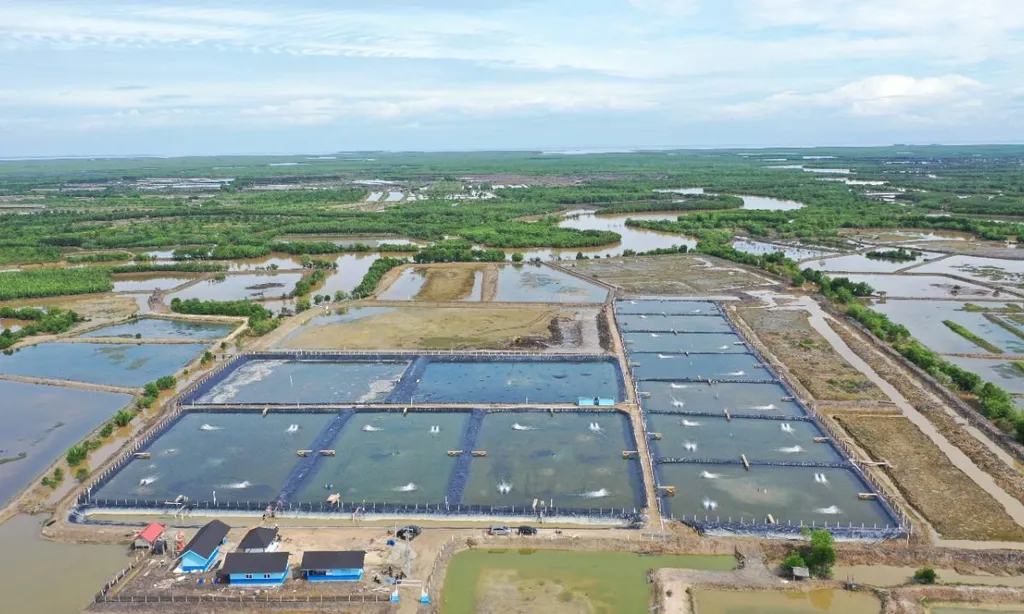In the heart of Pasuruan, Indonesia, a unique fusion of renewable energy and aquaculture is making waves, quite literally. Researchers from Universitas Airlangga, led by Rizki Putra Prastio, have developed a hybrid solar power plant that is transforming the way fish farms operate, offering a blueprint for sustainable development in the energy and fisheries sectors.
The Maju Rukun community in Karang Ploso had been grappling with significant challenges in their freshwater fish farm. Slow fish growth and poor water quality plagued their operations, primarily due to inadequate water circulation systems. The situation was further exacerbated by high electricity consumption from the public grid, particularly during the dry season. “The water pump alone consumed a substantial amount of electricity, increasing our operational costs by up to 80%,” explained a member of the Maju Rukun community.
Recognizing the need for a sustainable solution, Prastio and his team stepped in. They designed a 1.7 kWp hybrid solar power plant that integrates solar panels and batteries to reduce reliance on grid electricity. This innovative system not only powers the water circulation but also ensures consistent water quality, leading to healthier fish and faster growth rates. “The implementation of this hybrid power plant has significantly reduced our electricity costs and improved our fish farm productivity,” shared another community member.
The project extended beyond technical implementation. It included comprehensive training sessions for the Maju Rukun community and local residents on operating and maintaining the solar power plant. This empowerment ensures the long-term sustainability of the project and fosters local expertise in renewable energy technologies.
The success of this initiative highlights the potential for renewable energy to drive sustainable development in the fisheries sector. By reducing operational costs and improving productivity, the hybrid solar power plant offers a compelling case for similar projects in other regions. “This project demonstrates how renewable energy can be a game-changer for small-scale industries like fish farming,” Prastio noted.
The research was published in the Journal of Public Services, underscoring its relevance to both the energy and fisheries sectors. As the world increasingly turns to renewable energy solutions, this project serves as a beacon of innovation and sustainability, paving the way for future developments in the field. The integration of renewable energy technologies into traditional industries not only enhances efficiency but also contributes to a greener, more sustainable future.

